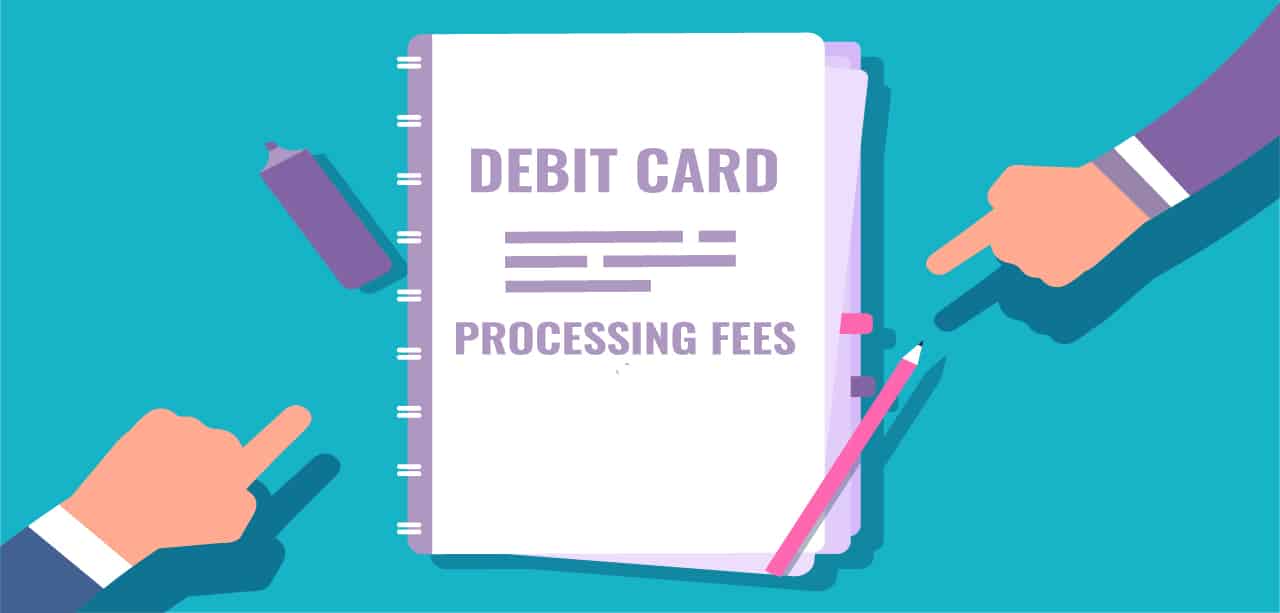
By admin January 27, 2022
Debit card processing fees are a critical component of any credit card processing company’s pricing structure. Debit cards make up an increasingly greater percentage of total transactions, and many payment processing companies have responded to this trend by offering debit card processing as a separate service or changing their pricing to accommodate these transactions. Debit cards are the preferred payment type for consumers and merchants alike because Debit processing fees tend to be lower than traditional credit card processing fees, and Debit cards offer consumers the convenience of not having to carry cash.
Debit cards work much like a standard credit card except that instead of requiring a line of credit established by the bank, they draw funds directly from your checking account when you make a transaction. Debit cards, therefore, tend to be very useful for immediate transactions and transactions where you do not want to put the item on your credit card. But they are also more complicated than standard credit cards in terms of processing fees because Debit cards can be processed in two different ways depending on what type of Debit card is being used.
Debit cards that require PINs are processed like standard credit cards where the business swipes the Debit card through a point of sale (POS) terminal. Debit cards that do not require PINs cannot be processed in this way because Debit cards without PINs draw funds directly from your checking account when you make a purchase by simply entering your Debit card number and a Personal Identification Number (PIN).
Debit cards that do not require PINs can be swiped as Debit cards or processed as Credit cards. In the latter case, the Debit card issuer draws funds from your checking account and places an authorization hold much like a standard credit card processing transaction except that it does not bill you for the Debit card transaction.
Debit cards are also processed in a similar fashion to credit cards when they are key-entered or e-commerce Debit cards where the Debit card number is entered into the appropriate fields on the merchant’s website and an online Debit purchase is made with no physical Debit card swiped. Debit card processing fees with Debit cards that do not require PIN entry are highest when Debit card transactions are key-entered or e-commerce Debit cards because Debit cards without PINs cannot be processed in the same way Debit cards with PINs can.
Debit card issuers like Visa and MasterCard set their own rates for Debit card transactions. Debit processing fees vary from Debit issuer to Debit issuer and Debit transaction type to Debit transaction type so it is best for a merchant to compare Debit processing rates from numerous Debit issuers before making a decision on which Debit service to use.
A Guide To The Different Types of Debit Card Debit cards can be processed in two different ways: Debit Cards that Require PINs Debit Cards that do not require PINs Debit Cards that require PINs are processed in much the same way as a standard credit card transaction. Debit transactions using this methodology draw funds from your checking account and place an authorization hold much like a standard credit card transaction.
Debit Cards without PINs Debit Card issuers are able to process Debit cards without requiring a Personal Identification Number (PIN) in two different ways: Debit Cards that require the Debit Card Number and the Expiration Date Debit cards that do not require the Debit Card number or expiration date Payment processing companies like Debit Card Solutions process Debit cards in the Debit cards that do not require the Debit card number or expiration date way.
When a Debit card is processed in this way, Debit transactions place an authorization hold much like a standard credit card transaction would but they do not bill you for Debit processing fees . It is important to note Debit card processing fees for Debit cards that do not require PIN entry are higher than Debit card processing fees for Debit cards with PINs because Debit card issuers have to pay a percentage of each Debit transaction to the payment processor.